Famous Composers and Their Pianos: The Instruments Behind the Masterpieces
- tschilbclick
- Mar 29, 2024
- 4 min read
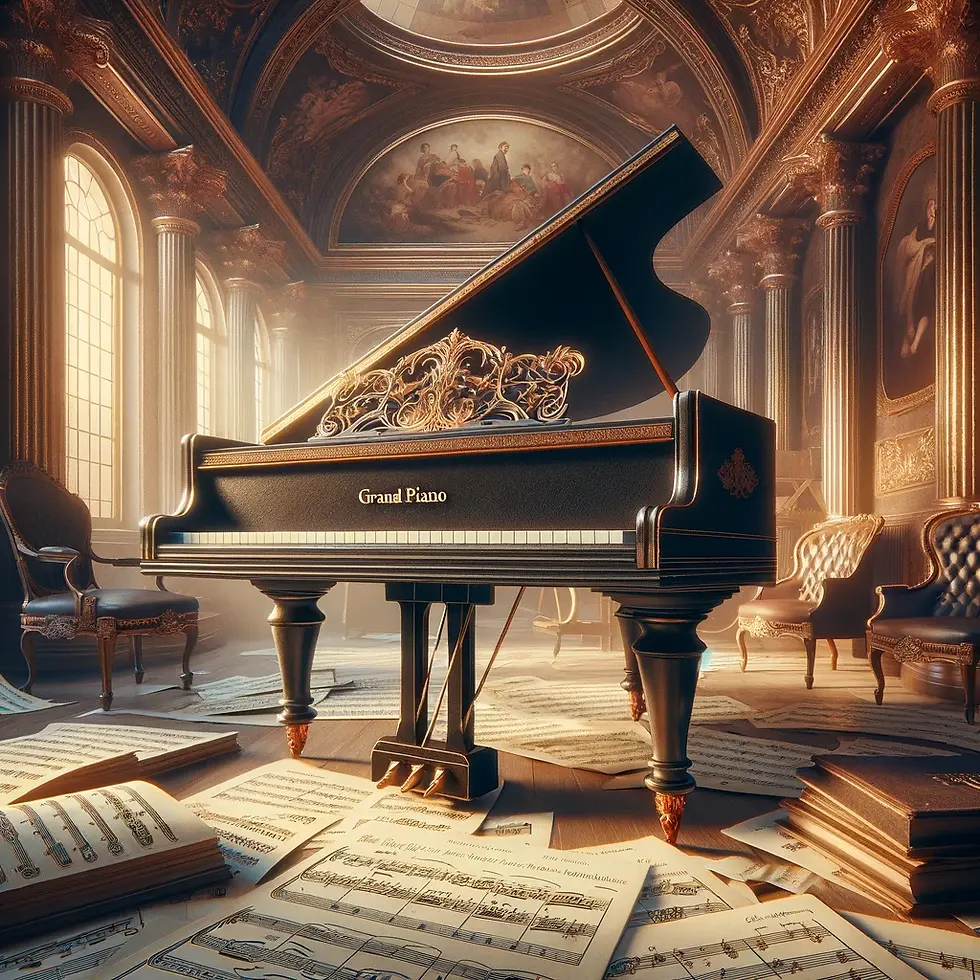
The piano, with its complex beauty and expressive range, has been a central instrument in the lives of many of the world's most renowned composers. From the delicate clavichords of the Baroque era to the grand pianos that fill concert halls today, these instruments have been the birthplace of some of the most enduring music ever written.
This blog delves into the stories of famous composers and the pianos that were their companions in creativity, revealing how these instruments influenced their music and legacies.
The Classical Innovators
Wolfgang Amadeus Mozart: The Fortepiano's Favorite Son
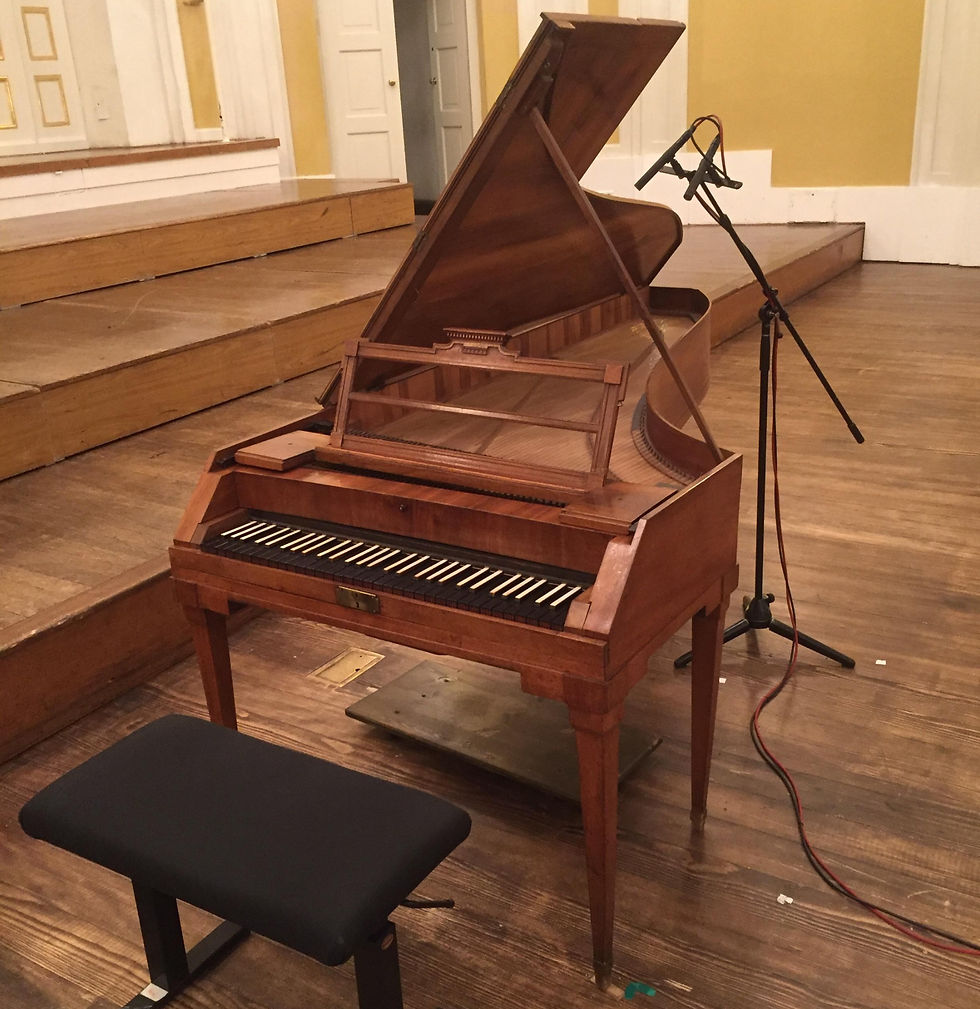
Mozart, a prodigy who left an indelible mark on classical music, primarily composed on fortepianos, the early ancestors of the modern piano. Unlike the harpsichord, the fortepiano allowed for dynamic expression, a feature Mozart exploited with his nuanced compositions.
His favorite instrument was made by Anton Walter, a renowned Viennese maker. The clarity and responsiveness of Walter's fortepianos enabled Mozart to explore a wider range of emotions and dynamics in his music, contributing to the evolution of piano composition.
Ludwig van Beethoven: Pushing the Fortepiano to Its Limits
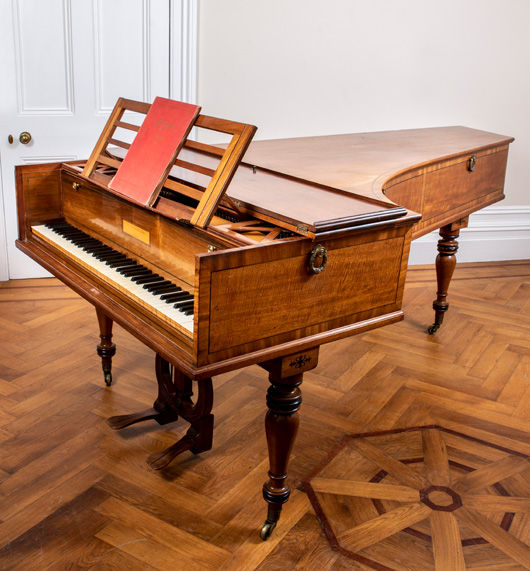
Beethoven's tempestuous compositions required more from the instruments of his time. He used several pianos throughout his career, constantly seeking more power and range to match his musical visions.
Notably, Beethoven played on a Broadwood piano, a gift from the English manufacturer. This instrument, known for its robust construction and richer sound, helped Beethoven compose his later symphonies, despite his advancing deafness.
The Broadwood piano's capability to produce a louder and more resonant sound paved the way for the modern grand piano.
The Romantic Virtuosos
Frédéric Chopin: The Poet of the Piano

Chopin's delicate melodies and intricate passages demanded an instrument with a wide expressive range and sensitive touch. He preferred Pleyel pianos, praising their light action and clear tone, which suited his lyrical style perfectly.
Chopin's relationship with the Pleyel brand was so profound that the company's instruments became synonymous with his music. The subtlety and nuance of Pleyel pianos allowed Chopin to craft compositions that were both technically demanding and emotionally profound.
Franz Liszt: The Showman's Choice
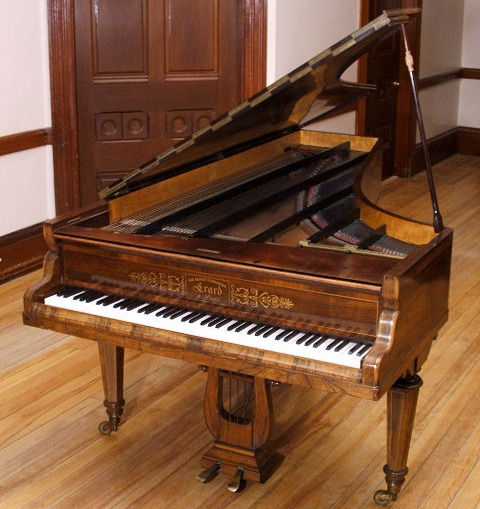
Liszt, known for his dazzling virtuosity and charismatic performances, required pianos that could withstand his powerful playing style and project over the sound of a full orchestra.
He often performed on Erard pianos, which featured a double-escapement action, allowing for rapid repeated notes—a necessity for Liszt's flamboyant compositions.
The durability and responsiveness of Erard pianos enabled Liszt to achieve unprecedented levels of volume and expression, captivating audiences and setting new standards for piano performance.
The Impressionist Innovator
Claude Debussy: The Colorist's Canvas
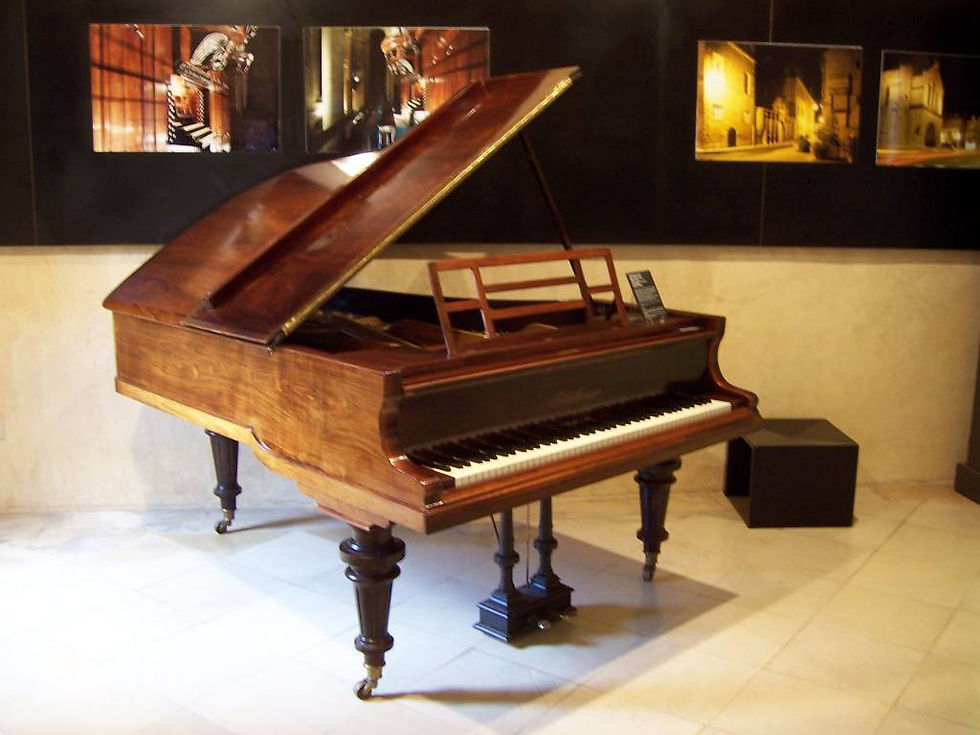
Debussy's atmospheric and evocative compositions, characterized by their use of non-traditional scales and tonalities, required an instrument capable of a wide palette of tones and colors.
Debussy favored Blüthner pianos, which were known for their warm, rich sound and distinctive aliquot stringing—a design feature that added sympathetic resonance and contributed to the piano's unique timbre. The nuanced sound of Blüthner pianos was ideal for Debussy's impressionistic style, allowing him to paint with sound and create his ethereal musical landscapes.
The Modern Maestro
Sergei Rachmaninoff: The Powerhouse's Partner
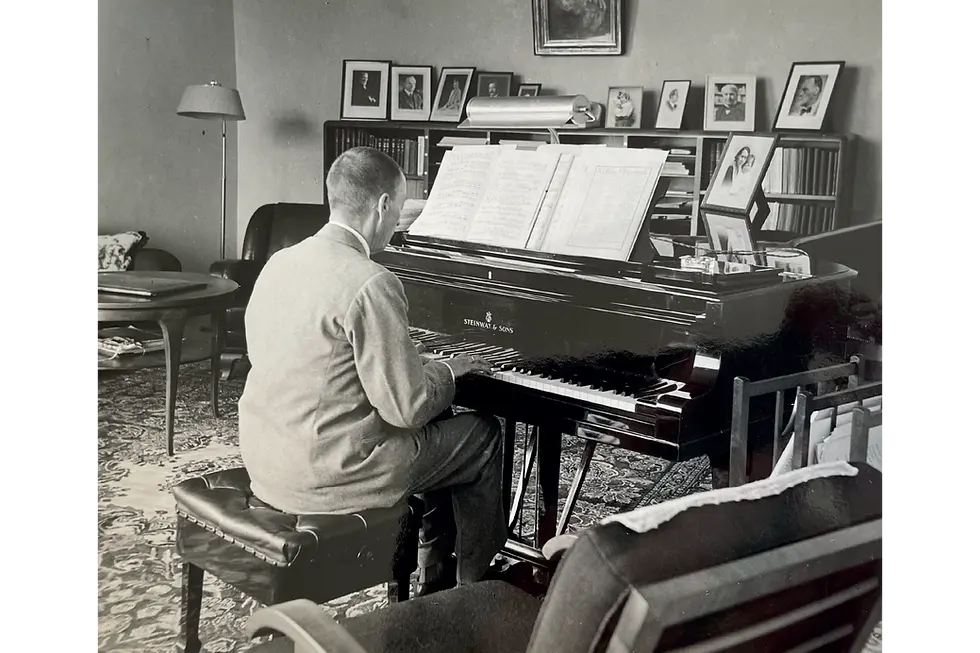
Rachmaninoff's compositions, with their lush harmonies and demanding technical passages, required a piano with a deep, powerful sound and a highly responsive action.
He had a preference for Steinway pianos, particularly for their wide dynamic range and robust construction. Steinway's dedication to craftsmanship and innovation resonated with Rachmaninoff, providing him with the tools to compose and perform his emotionally charged and technically challenging works.
The enduring partnership between Rachmaninoff and Steinway pianos underscores the critical role of the instrument in realizing a composer's musical intentions.
Conclusion
The relationship between composers and their pianos is a testament to the piano's profound impact on the development of music. Each composer's preference for a certain make of piano—whether for its touch, tone, or durability—played a significant role in shaping the music they composed.
From the fortepianos of Mozart and Beethoven's era to the grand pianos favored by Rachmaninoff, these instruments were not just tools but partners in the creative process, offering the composers the expressive means to bring their visions to life.
As we explore the legacies of these musical giants, we're reminded of the piano's versatility and enduring appeal. The stories of these famous composers and their pianos highlight the deep, personal connection between musician and instrument—a relationship that continues to inspire pianists and composers around the world today.
Final Note
If you're inspired by the stories of famous composers and their pianos and wish to embark on your own musical journey, consider exploring "Piano lessons Fort Wayne."
For those not in the area, searching for "Piano lessons near me" can connect you with skilled instructors ready to guide you through the intricacies of piano playing.
Whether you're a beginner eager to learn the basics or an advanced student looking to refine your technique, these lessons offer a personalized approach to help you navigate the path of musical discovery. Embrace the opportunity to create your own connection with the piano, and perhaps one day, your musical journey will inspire others as well.




Musicians, students, and teachers often need blank staff paper for composing or exercises. Instead of buying manuscript books, you can find high-quality, free printable StaffPaper online. It’s very convenient for quickly getting the notation sheets you need.